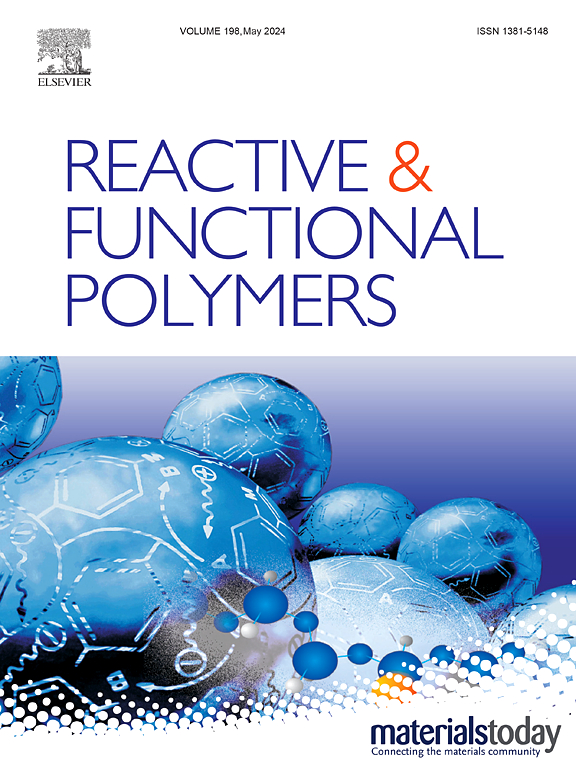Preparation of magnetic molecular imprinted polymers based on deep eutectic solvent and its application in the specific adsorption and detection of fluoxetine hydrochloride
IF 4.5
3区 工程技术
Q1 CHEMISTRY, APPLIED
引用次数: 0
Abstract
Magnetic molecular imprinted polymers (MMIPs) for specific adsorption of fluoxetine hydrochloride (FXT) were prepared by using a new solvent, deep eutectic solvents (DESs) as the porogen, magnetic Fe3O4 nanoparticles modified twice as the carrier and methacrylic acid (MAA) as the functional monomer. The effects of DESs type, molar ratio of functional monomer to template molecule and amount of crosslinker on the adsorption properties of MMIPs were investigated. The characterization results showed that the optimized MMIPs is a rough porous material with a particle size between 300 and 500 nm, and the magnetic properties and thermal properties are satisfactory. The adsorption of MMIPs for FXT reached the equilibrium within 30 min. The equilibrium absorption capacity was 38.54 mg·g−1 with an imprinting factor of 1.88. The constructed MMIPs showed good specificity and reusability. A rapid, simple and economical detection method for residual FXT in environmental water samples was established with the recovery rate between 94.4 and 102.2 %, and LOD and LOQ of 4.0 μg·L−1 and 1.2 μg·L−1, respectively.

基于深度共晶溶剂的磁性分子印迹聚合物的制备及其在盐酸氟西汀特异性吸附和检测中的应用
以深共晶溶剂(DESs)为多孔介质,磁性Fe3O4纳米颗粒为载体,甲基丙烯酸(MAA)为功能单体,制备了用于吸附盐酸氟西汀(FXT)的磁性分子印迹聚合物(MMIPs)。考察了DESs类型、功能单体与模板分子的摩尔比以及交联剂用量对MMIPs吸附性能的影响。表征结果表明,优化后的MMIPs是一种粒径在300 ~ 500 nm之间的粗糙多孔材料,具有令人满意的磁性能和热性能。FXT对MMIPs的吸附在30 min内达到平衡,平衡吸附量为38.54 mg·g−1,印迹因子为1.88。所构建的MMIPs具有良好的特异性和可重用性。建立了一种快速、简便、经济的环境水样残留FXT检测方法,回收率为94.4 ~ 102.2%,LOD和LOQ分别为4.0 μg·L−1和1.2 μg·L−1。
本文章由计算机程序翻译,如有差异,请以英文原文为准。
求助全文
约1分钟内获得全文
求助全文
来源期刊

Reactive & Functional Polymers
工程技术-高分子科学
CiteScore
8.90
自引率
5.90%
发文量
259
审稿时长
27 days
期刊介绍:
Reactive & Functional Polymers provides a forum to disseminate original ideas, concepts and developments in the science and technology of polymers with functional groups, which impart specific chemical reactivity or physical, chemical, structural, biological, and pharmacological functionality. The scope covers organic polymers, acting for instance as reagents, catalysts, templates, ion-exchangers, selective sorbents, chelating or antimicrobial agents, drug carriers, sensors, membranes, and hydrogels. This also includes reactive cross-linkable prepolymers and high-performance thermosetting polymers, natural or degradable polymers, conducting polymers, and porous polymers.
Original research articles must contain thorough molecular and material characterization data on synthesis of the above polymers in combination with their applications. Applications include but are not limited to catalysis, water or effluent treatment, separations and recovery, electronics and information storage, energy conversion, encapsulation, or adhesion.
 求助内容:
求助内容: 应助结果提醒方式:
应助结果提醒方式:


